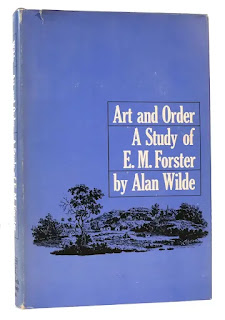By Daniel T. O’Hara, JML Co-Editor
We are saddened to report that Sheldon (Shelly) Brivic, a JML advisory editor since the 1970s, retired Temple University English professor, and a Joyce and modern fiction specialist of considerable renown, died on November 29, 2020, at the age of 77.
Another retired former colleague, close friend and JML advisory editor, Alan Singer, had heard the news and alerted me. Prior to his death, Brivic had voluntarily been living with his wife Barbara, who had been ill with Alzheimer’s, in Sunrise of Lafayette, an assisted living facility specializing in memory care.
When I googled his name to learn more details, I was still in a bit of a shock. Thanks to Google, one of the items popping up was a 2019 letter to the New York Times, which I will quote in full as it is characteristic of Brivic: succinct, corrective, and objective.
March 22, 2019
‘Good Bait’
To the Editor:
James McBride’s fine review of the magnificent Toni Morrison’s “The Source of Self-Regard: Selected Essays, Speeches, and Meditations” (March 3) refers to “the swing-era song ‘Good Bait,’ made famous by Count Basie.” Basie recorded “Good Bait,” but it was composed by the pianist Tadd Dameron, who has not received enough credit for being one of jazz’s greatest Composers.
Sheldon Brivic
Lafayette Hills, PA
This is not to say Shelly, as he was affectionately known by all, was lacking affect. He was subtle at self-expression, as in the last sentence here, with this reader thinking “shouldn’t any reviewer of this book know whereof he speaks concerning ‘Good Bait’ and its composer when it is a matter of pride in achievement by Morrison, African-American Nobel Laureate and should be so for James McBride, the nearly as well-known African-American writer, memoirist, and reviewer?” Shelly just states the facts, however, and leaves the ramifying implications, emotional and intellectual, to sort through, to us and McBride.
This was the same style Shelly expressed in his books, most (5 of the 7 scholarly monographs) on Joyce from a psychoanalytic perspective, including Joyce Between Freud and Jung (1980), Joyce the Creator (1985), The Veil of Signs: Joyce, Lacan and Perception (1991), Joyce’s Waking Women: A Feminist Introduction to Finnegan Wake (1995), Joyce through Lacan and Zizek (2008). The two other critical theoretical books he authored are Tears of Rage: The Racial Interface of Modern American Fiction: Faulkner, Wright, Pynchon, Morrison (2008) and Revolutionary Damnation: Badiou and Irish Fiction from Joyce to Enright (2017). Stealing: a Novel in Dreams was published in 2019 (JML’s review is available HERE). This JML blog got its start housing this review of Shelly’s novel.

As a long-time JML advisory editor, Shelly did yeoman duty with evaluating submissions and reviewing new books in his field, as well as publishing articles himself. For example, in "Revolutionary Joyce" he reviewed a new book, The Strong Spirit: History, Politics, and Aesthetics in the Writings of James Joyce, 1898–1915, by Andrew Gibson (JML 38.2, Winter 2015, pp. 183-190); and in "Residual and Emergent Cultures in Joyce Studies" he reviewed several important new books, expanding Joyce Studies: Semicolonial Joyce by Derek Attridge, Marjorie Howes; Ulysses: En-Gendered Perspectives: Eighteen New Essays on the Episodes by Kimberly J. Devlin, Marilyn Reizbaum; Chaos Theory and James Joyce's Everyman by Peter Francis Mackey; Joyce's Book of Memory: The Mnemotechnic of Ulysses by John S. Rickard; Joyce and Hagiography: Saints above! by R. J. Schork (JML 23.3/4, Summer 2000, pp. 575-581). His latest article in the journal was "The Lacanian Phallus and the Lesbian One in Wharton's 'Xingu'” (JML 35.2, Winter 2012, pp. 25-36).
Fifteen years ago, Shelly appeared with me and a then recently graduated PhD student of mine Gina MacKenzie (now associate professor and associate dean at Holy Family University and a current JML advisory editor) on an MLA Panel about Lacanian approaches to modernism. Gina and I discussed, from a Lacanian revised perspective on the drive, how some of Wallace Stevens’s so-called “poems of death” enacted shy solicitations of Death by a nearly fulfilled old Eros—only lacking this last Beloved to seal the deal with the Real, as it were. For his part, Shelly was discussing how Lacan and Zizek made him see Morrison’s fiction anew, as so many “tears of rage” as in the song of the title by the Band (co-written by its lead guitarist Robbie Robertson and Bob Dylan). What united us few in life then, and so many more now in this pandemic land’s death-in-life, is clearly a community of feeling enjoying rare pleasures in intellectual loves. Tears of rage may be tears of grief, as the song puts it, but they are so only because they are first of all tears of love. Shelly Brivic is a greatly missed colleague and friend.







